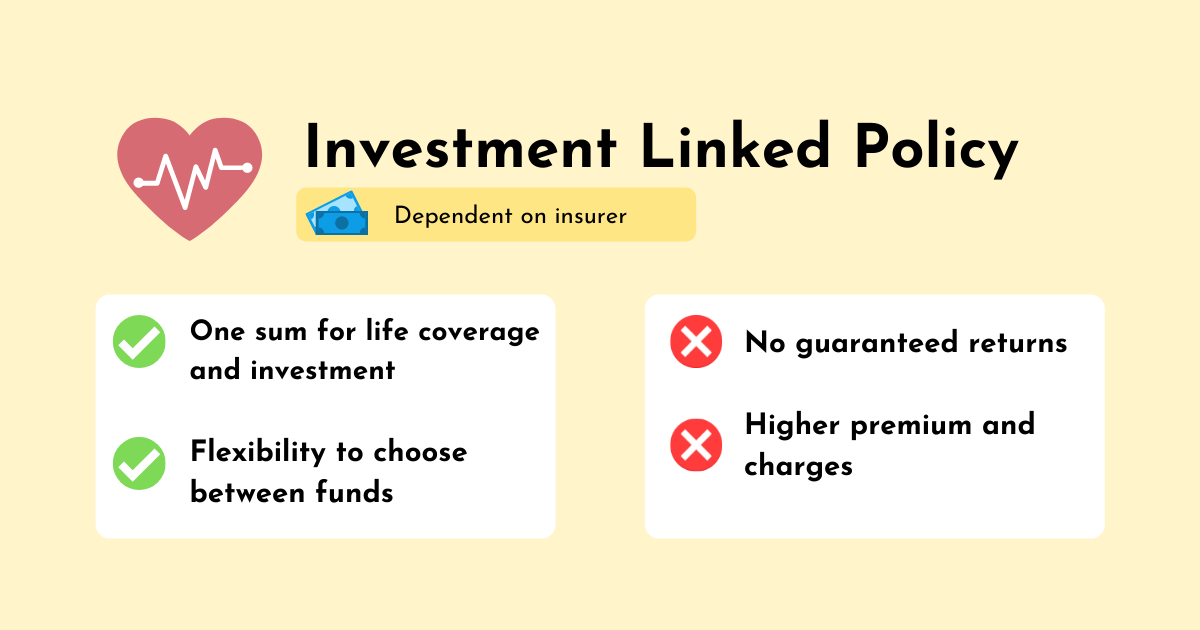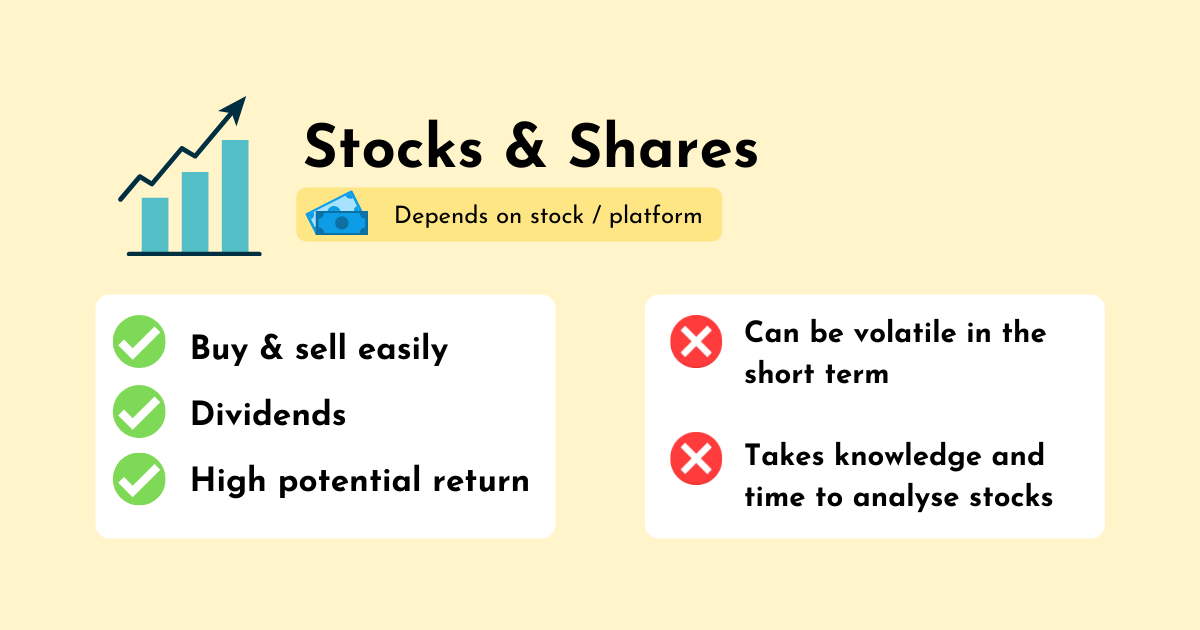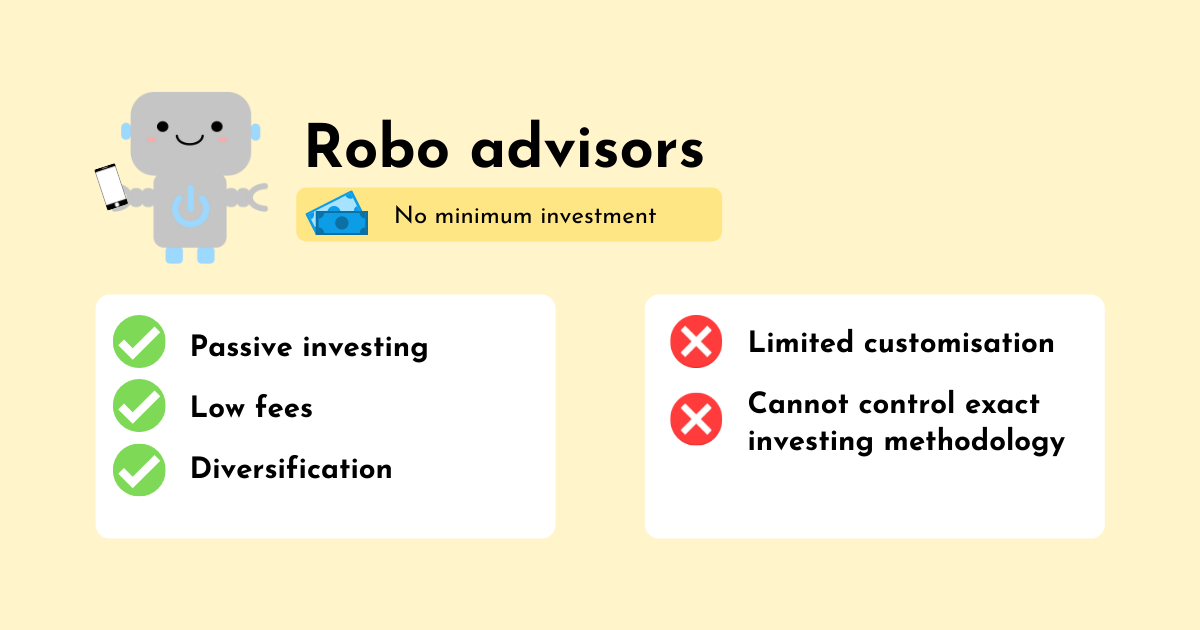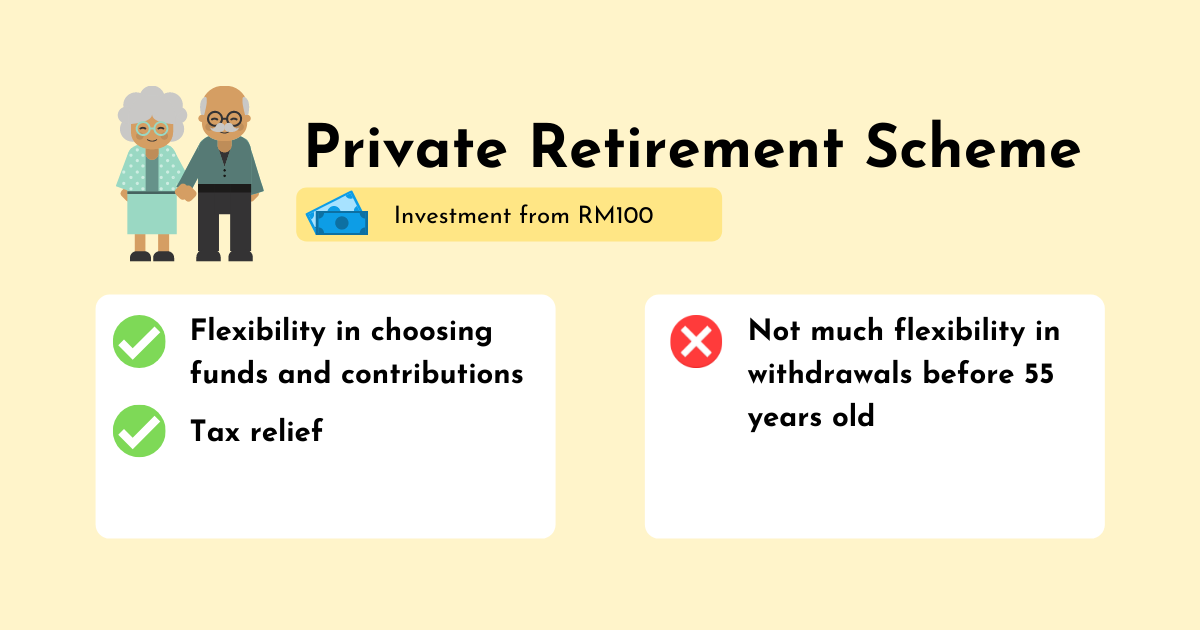8 Easy Ways To Start Investing In Malaysia If You're New To It And Don't Know Anything
If you feel like a complete noob and have no idea what to invest in.
First things first, you need to know that there is always a risk that comes with investing
While young investors may be attracted to the idea of making a quick profit, the truth is that investment is a long-term commitment. Since there is always a chance you may lose your money, you should only start investing when you are financially stable.
What this means is having an emergency fund (usually three to six months of your salary), having enough for your usual monthly expenses, and still having extra after all that to invest in.
Once that is in place, you can start exploring the different types of investment options.
1. Fixed Deposit
Commonly known as FD, this is a type of savings that promises a fixed interest rate. One of the safest options for beginners, you'll get a steady return as long as you keep your money in the FD account for a certain period of time.
Withdrawing your FD before it matures will result in a lower interest rate and a possible penalty.
Pros: Easy to open, minimum risk, guaranteed returns
Cons: Cannot withdraw for a fixed period, interest paid at the end of investment period
Who should invest in fixed deposit?
If you are risk-averse and want an easy, safe way to start investing, FD is a good option. It's easy to open an FD account, and some banks offer a minimum investment of RM500. However, take note that the current FD interest rate is quite low (below 2% p.a.).
2. Unit Trust
With unit trust, you put money into a collective investment pool, and a fund manager will use that to invest in a diverse porfolio of assets. You'll get to enjoy returns in the form of dividends or an increase in the value of your investment.
One thing to note is that you'll have to pay management fees, transaction fees, and sales charges (if you have an agent). To lower the cost, you can opt to manage your own funds.
Pros: Low starting capital, diversification of portfolio, suits different risk profiles
Cons: Hard to choose between many options, the fees can add up
Who should invest in unit trust?
Unit trust is for people who want a long-term, stable, and safe approach to investing. The good thing is that you can start investing from as low as RM100. Find out more by approaching unit trust agents and banks offering unit trusts, or visit online platforms like FSMOne and eUnittrust.
3. Investment-Linked Insurance Policies (ILPs)
What's unique is that a portion of your insurance premium goes to life coverage, while the other portion is invested. You can choose the type of funds you want to invest in, and monitor or top up your policy according to your needs. You can also withdraw from your investment account at any time.
Over time, your coverage cost may increase with your age. Instead of raising your premium, the insurance company will deduct money from your investment account.
Pros: Pay one sum to get both coverage and investment, flexibility to choose funds
Cons: No guaranteed returns, higher premium and charges
Who should invest in ILPs?
If you want to get life coverage and start investing, you can kill two birds with one stone thanks to ILPs. However, with the convenience provided, the downside is you'll probably be getting less value overall. To find out more, you can get in touch with an insurance agent or compare ILPs online.
4. Stocks and Shares
One of the higher risk investments, you can buy stocks of a company listed on Bursa Malaysia. When you buy a stock, you are basically owning a tiny piece of a company; if it does well, its stock price should go up and pay you dividends.
This type of investment tends to offer a higher return, but is riskier due to market volatility. That's why you should do your research and learn the basics of investing before going into stocks and shares.
Pros: Can be bought and sold easily, income from dividends, high potential return
Cons: Volatile in the short term, takes knowledge and time to analyse stocks
Who should invest in stocks and shares?
Beginners with no knowledge are not advised to invest in stocks right away. However, if you are willing to put in the time to research and analyse potential companies to invest in, the stock market can be a rewarding investment. You can either manage your shares online via a platform like Rakuten Trade or hire a stock broker at a fee to do it for you.
5. Gold
You used to only be able to invest in gold by buying physical gold bars or jewellery. However, with the rise of gold bank accounts and trading apps, you can now invest in gold starting from RM1.
The good thing about gold is that it tends to do well during recessions or when stock prices are volatile. This means gold is a good way to hedge your other investments.
Pros: Good long-term investment, easy to buy, can withdraw as cash or physical gold
Cons: Takes a longer time to appreciate in value
Who should invest in gold?
For those with a low risk appetite and moderate cash reserve, gold is a good long-term investment strategy. However, don't expect to make quick returns. You can check the current gold price on this website, or start investing in gold with HelloGold, Maybank, or other platforms.
6. Robo Advisors
Robo advisors like StashAway and MYTHEO have become increasingly popular among young investors because of how simple it is to start investing. A robo advisor is a digital platform that uses algorithms to automate your investment portfolio.
Most of these platforms have a low minimum investment amount, and can be curated based on risk tolerance, investment time period, and goals. Plus, you can deposit and withdraw funds easily with little to no additional cost. Some even allow you to open an FD account with them.
Pros: Passive investing, low fees, diversified portfolio
Cons: Limited customisation, you won't be able to control the exact investing methodology
Who should invest using robo advisors?
For young investors who want an easy way to get into investing, robo advisors are user-friendly and minimal hassle. However, savvy investors would most probably prefer to be more hands-on, which is something you won't get with robo advisors. If you decide to go with robo advisors, make sure you choose a reputable platform and find out the fees beforehand.
7. Private Retirement Scheme (PRS)
While most Malaysians contribute to Employees Provident Fund (EPF), PRS offers another avenue of saving up for your retirement. Considered as a long-term investment, you have to wait until you turn 55 to withdraw it completely (you can withdraw a portion of it once a year with an 8% tax penalty).
Nevertheless, PRS is considered one of the safest investment options for your future, on top of being regulated by the Security Commission. You can choose different schemes based on your risk appetite, and a trustee will manage your funds.
Pros: Flexibility in choosing funds and contributions, tax relief up to RM3,000
Cons: Less flexibility in withdrawals before 55 years old
Who should invest in PRS?
PRS is a good investment for those who are planning for retirement, and would not need to withdraw their investments before that. You can start investing in PRS from as low as RM100, and top-up as and when you want to. Sign up directly for PRS online or contact registered PRS consultants to assist you.
8. Cryptocurrency
Cryptocurrencies are digital currencies powered by blockchain technology. In the past few years, the value of cryptocurrencies have skyrocketed, attracting many investors to try their hand at it. Some of the most popular cryptocurrencies include Bitcoin, Ethereum, Cardano, and Tether.
However, cryptocurrency is a very risky investment, as the prices may fluctuate within a matter of hours. That's why your risk appetite must be high and you should be informed of the digital world trade movement if you want to get into cryptocurrency.
Pros: Potential for high returns, immediate transactions globally, secure blockchain networks
Cons: High volatility, unregulated, requires understanding of the cryptocurrency market
Who should invest in cryptocurrency?
Cryptocurrency is a high risk, high reward kind of investment. If you are willing to learn the ropes and face the unpredictability of the market, you can start by opening an account with cryptocurrency exchanges like Luno and Tokenize Technology, or international ones like eToro.
These are just a couple of investment options to give you an idea of where to start. Besides these, you can also invest in bonds, real estate, and forex just to name a few.
All in all, make sure you do your research before placing your money into any sort of investment. Don't be afraid to ask for help, and be extra careful especially with investment opportunities that sound too good to be true. And if you do it the right way, chances are you'll be rewarded in the long run. :)







